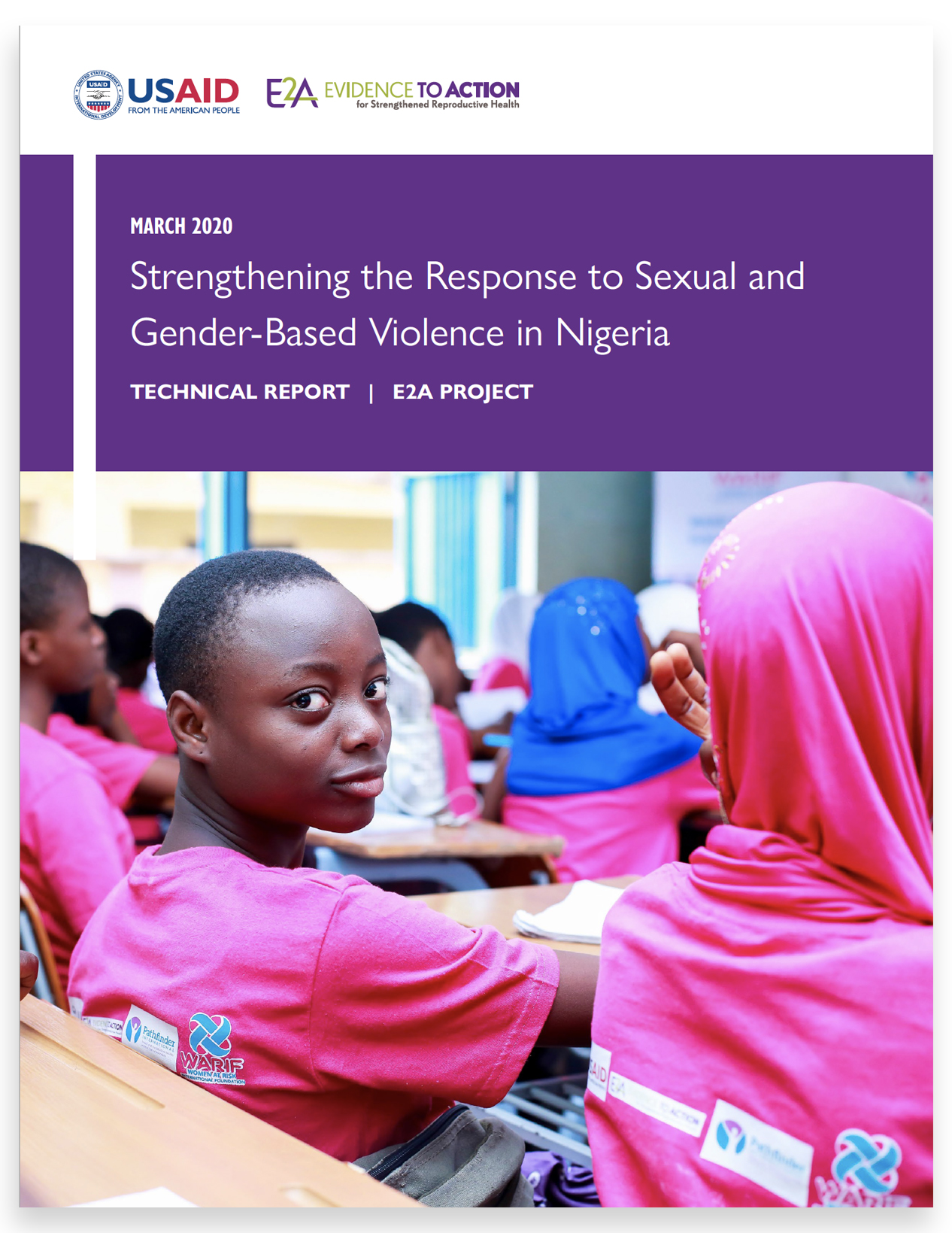Responding to a Crisis within a Crisis
Nigeria has made significant progress in addressing sexual and gender-based violence. COVID-19 will set us back—unless we take action.
(content warning: rape, gender-based violence, and sexual violence against children)
I will never forget one child survivor.
She was just three years old when she was raped and discarded at a construction site. She was discovered, suffering but alive, in an unfinished building.
By the time I heard about her condition, she had been bleeding for two days without any treatment. Her family was so poor, they couldn’t pay for transport to the health facility. So I dispatched our team with an ambulance to get her.
I know her story is hard to read. But it’s the reality we face all over the world, where one in three women face sexual and/or gender-based violence (SGBV) in their lifetime. In my home country of Nigeria, where I work as a clinician and manager of sexual assault referral center in Jigawa State, SGBV is a serious problem.
Our boys and men are suffering too.
Behind these statistics, I see the faces of the survivors we serve at our sexual assault referral center (or “SARC”). I see the three-year-old girl, whose injuries were so bad—you could not believe it. She needed a surgical intervention.
Thankfully, we had the skills and resources to help her.
Strengthening our response
My team had recently taken part in an initiative called “Strengthening the Response to Sexual and Gender-Based Violence,” led by Pathfinder International’s Evidence to Action (E2A) Project, funded by USAID. The experience really changed the way our SARC operates.
Improving the quality of services
Through the project, we attended several workshops and trainings that tremendously improved the quality of the services we offer survivors. We now provide better treatment for injuries, as well as emergency contraception and post-exposure prophylaxis for HIV. Our counseling has also improved; so has the way we conduct head-to-toe examinations, write comprehensive forensic reports for the police, and present at court.
Mobilizing communities
Because of stigma, many people used to hide cases of SGBV. They worried our SARC wouldn’t keep their identity confidential or protect the wellbeing of survivors. But through this project, we conducted awareness campaigns. We shared messages over the radio, on TV, with students during school visits, and through group discussions with influential religious and traditional leaders. Before long, community members started contacting us—call after call—alerting us to cases of SGBV.
In response, we dispatched new Case Teams. Together, a doctor, nurse, lab technician, and an ambulance driver went into the community and brought a survivor (who couldn’t otherwise make it to the hospital) to our SARC.
Advocating for resources
We also learned how to advocate and get results. Using strategies we learned through the project, we conducted visits to various stakeholders and policymakers—from the community to the police commissioner to the State Assembly. One of the biggest successes was this: we were able to mobilize the Ministry of Health to sign and approve of free treatment to all survivors.
Now, when a survivor arrives at the SARC, lab investigations, treatments—everything—is free.
We’ve made other major changes too. Providing home visits to all survivors to make sure they are doing well. Enhancing our data use. Sharing lessons with other states, so what we’ve learned can change lives in other parts of Nigeria. The list goes on.
And then COVID-19 struck.
Threatening hard-won progress
Like the rest of the world, Jigawa State is impacted by the COVID-19 crisis. Without the daily income people rely on, abject poverty is on the rise. That means paying for transportation to a hospital is even harder than before.
Because of the lockdown, our SARCs are seeing a real increase in the number of SGBV cases—domestic violence, rape of minors, all of it.
At the facility, health workers are scared of getting the coronavirus. It’s impacting the amount of time they spend with clients. Other providers have to stay home, taking care of their own children while schools remain closed. That leaves forensic examiners to counsel and care for SGBV survivors. At times, we’ve had to shut down our SARC completely.
We were forced to stop all home visits, as we limit contact until staff have proper protection.
While we work to keep ourselves safe from COVID-19, how can we make sure the progress we’ve made in addressing SGBV isn’t lost?
I have three ideas:
1) Get creative and leverage our improved counseling skills. During crisis time, our professionally trained counselors can support survivors and their families over the phone—until they are able to visit the SARC. In fact, we recently received funds from the European Union, through the Rule of Law and Anti-Corruption (RoLAC) project, for a hotline that allows us to respond to calls from clients all over the country.
2) Coordinate across ministries to promote sustainability. As a result of our strengthened advocacy, we were able to secure a dedicated budget allocation through the State Ministry of Women Affairs. These funds will be critical to continuing the good work of our SARC.
3) Recommit ourselves. SGBV is a serious problem, and it’s getting worse during the pandemic. We must call on families to be more vigilant to keep their children safe, and to raise awareness about the increase in domestic violence. We need the messages to echo across the airwaves. We need communities to hear us—now more than ever.


